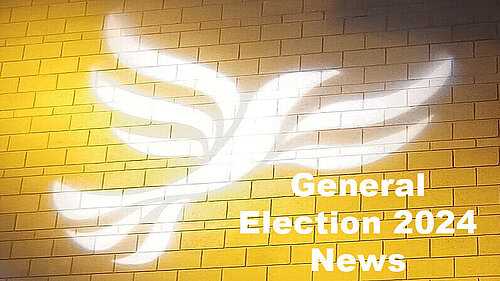Free school meals

The Lib Dems have announced plans for free school meals for 18,556 more primary school children in Derbyshire:
- The Liberal Democrats have announced their ambition to extend free school meals to all primary school children, beginning with all children in poverty across both primary and secondary schools.
- This would mean an extra 18,556 primary school children in Derbyshire receiving free school meals.
- The party will fund their manifesto policy by introducing a share buyback tax, inspired by a similar tax introduced by Joe Biden in the US.
- Lib Dem Spokesperson Robert Court slams Conservative government for “letting children go hungry in the worst cost of living crisis in a generation”. The Liberal Democrats have launched their ambition to extend free school meals to all primary school children, funded by a new share buyback tax.
The government currently only provides meals for all children in reception, year 1 and year 2. In year 3 and above, the government has set stringent conditions on family income for children receiving free school meals. Currently in Derbyshire, just 10,500 (26.6%) of primary school children in year 3 and above receive free school meals. In government, the Liberal Democrats would ensure 100% of primary school children receive free school meals.
The party’s plan also includes an immediate extension of free school meals to all 900,000 children living in poverty who currently miss out across both primary and secondary school. This is estimated to be 70,000 in the East Midlands, who would all be covered under the Liberal Democrats’ plan.
Analysis by PWC found that every £1 spent on free school meals for the poorest children generates £1.38 in health and earnings benefits, including improvements to children’s health, education and future working life opportunities.
The new policy will make the Liberal Democrats the most ambitious party on free school meals.
The manifesto pledge would be funded by a 4% levy on the share buybacks of FTSE 100 listed corporations, similar to the excise tax on buybacks implemented by President Biden in the US, which could raise around £1.4bn a year. Share buybacks occur when companies use profits to inflate their own share price, a practice which critics have warned can come at the expense of productive investment in the economy.
The sectors using share buybacks the most are oil and gas giants, banks and large corporations that own a number of food and consumer goods brands. This suggests the practice is being driven by companies profiting from soaring prices during the cost of living crisis.
Liberal Democrat Parliamentary Candidate for Derbyshire Dales, Robert Court said:
“Across Derbyshire, there are too many children expected to learn on empty stomachs with no guarantee of a hot meal when they get home. “Conservative MPs should hang their heads in shame at a legacy of children going hungry in the worst cost of living crisis in a generation. “It is time for change. Every vote for the Liberal Democrats in Derbyshire Dales is a vote for a local champion who will fight for the wellbeing of children and their futures. “I am proud the Liberal Democrats have the most ambitious plan for free school meals of any party, which would save parents money and transform the future for millions of children.”
ENDS
Notes to Editors:
Source for Primary School Children Data:
Department for Education Statistics, 2022-23
Source for Children in Poverty Data:
Child Poverty Action Group, July 2023
Extending Free School Meals to an additional 900,000 children in poverty would cost
approximately £500m a year. A 4% share buyback tax would raise around £1.4bn a year.